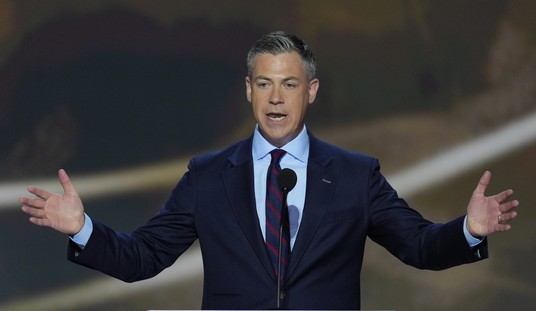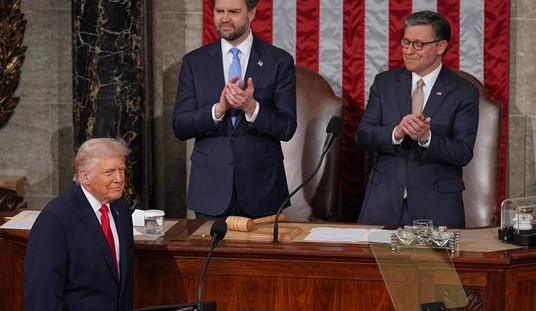On March 13, 1964, 28-year-old Kitty Genovese was walking from her car to her apartment. She was stabbed multiple times, raped, and left to die. No one lifted a finger to save her. In her death she became a icon for the uncaring city dweller, in particular for the uncaring New Yorker. Though we know much of the story originally published by the New York Times was false, in fact several people called the police and at total of 49 were eventually to give evidence as eyewitnesses of one type or another, the fact remains that no one did anything. From the NY Post article Debunking the myth of Kitty Genovese we have these vignettes:
Across the street, a man named Robert Mozer heard Genovese from his apartment. Looking out his seventh-floor window, he saw a man and a woman, sensed an altercation — he couldn’t see exactly what was happening — and yelled out his window, “Leave that girl alone!”
Moseley later testified that Mozer’s action “frightened” him, sending him back to his car. At this point, Genovese was still alive, her wounds nonfatal.
Fourteen-year-old Michael Hoffman, who lived in the same building as Mozer, also heard the commotion. He looked out his window and told his father, Samuel, what he saw. Samuel called the police, and after three or four minutes on hold, he reached a police dispatcher. He related that a woman “got beat up and was staggering around,” and gave them the location.
Other neighbors heard something as well, but it wasn’t always clear what. Some looked out the window to see Moseley scurrying away, or Genovese, having stood up, now walking slowly down the block, leaning against a building. From their vantage point, it wasn’t obvious that she was wounded. Others who looked didn’t see her at all, as Genovese walked around a corner, trying to make her way home at 82-70 Austin St.
But the police did not respond to Samuel Hoffman’s call, and Moseley, seeing no help was imminent, returned. He hunted down Genovese — who had made it to a vestibule in her building before collapsing — stabbed her several more times, then raped her.
…
The tale of uncaring neighbors was not completely false. There are two men who certainly watched the crime happen and did nothing.
Joseph Fink was an assistant superintendent at the building across the street from Genovese’s. Stationed in the building’s lobby, he had a clear view of the first stabbing, and later told prosecutors that he “thought about going downstairs to get my baseball bat,” but took a nap instead. When asked by the prosecutor why he didn’t help, he shrugged. Another prosecutor later said, “It made me sick to my stomach dealing with this man.”
The other thoughtless witness was Karl Ross, a dog groomer who lived two doors down from Genovese and Zielonko. Ross was a friend who would often care for Genovese’s dog, which he had sold her, and also frequently came by to drink and chat.
Ross was, according to Zielonko, a “very nervous, frightened person.” He was also usually accompanied by a bottle of vodka. When Genovese and Zielonko spoke of him, they thought of him as “scared of his shadow, trying to drink his fears away.”
Genovese would learn the hard way just how true this was.
As was his habit, Ross had been drinking the night of the murder. At 3:30 a.m., he heard a noise outside his window that sounded like a woman screaming.
“Skittish by nature, the groggy Ross wasn’t eager to find out what was happening,” Cook writes. “He stayed where he was. He waited, hoping the noises would stop. Soon they died down. He relaxed.”
But a few minutes later, a similar noise arose, this one closer, possibly “a scuffling” or “a muffled cry.”
“Ross stood by his door but didn’t open it,” Cook writes. “He paced behind it, wondering what he should do. At last his curiosity got the best of him. He opened the door a crack.”
What he saw was Genovese, his friend, “lying flat on her back . . . trying to speak” as Moseley continued stabbing her. Suddenly, Moseley stopped — and looked directly at Ross, who retreated into his apartment as quickly as possible.
Instead of calling the police, Ross wasted time calling other neighbors for advice, and they, for reasons unclear, then called others. It was a fatal game of telephone that wasted precious minutes, until Farrar finally yelled at Ross to call the police while she rushed to comfort the victim. Ross called at 3:55, too late to save Genovese’s life.
The salient point here is not what the neighbors did or didn’t do, you don’t know how you will perform in a high-stress, potentially fatal situation until it happens. But everyone knew how these people should have acted and they suffered the opprobrium of a nation for failing in that most basic of human and Christian duties.
Over the July Fourth weekend, Washington, D.C. experienced a murder made even more horrific by its circumstances. Congressional intern Kevin J. Sutherland, 24, was riding on the Metro Red Line at 1pm on July 4. He was confronted by 18-year-old Jasper Spires who demanded he hand over his cell phone.
The two struggled, police said, and the terror began.
Police and a witness interviewed said passengers trapped in the moving train huddled at both ends of the car and watched in horror as Spires punched 24-year-old Kevin Joseph Sutherland until he fell to the floor, then stabbed him until he was dead. Court documents say the victim was cut or stabbed 30 or 40 times, in the chest, abdomen, back, side and arms. Police said the assailant then threw the victim’s cellphone and returned to stomp on Sutherland’s body.
…
When the frenzy was over, the woman, who is from Texas and was headed to the concert with her 76-year-old father, said the attacker turned his bloody knife on them. A police report said he told her father, who lives in the District, “Give me what you got,” took $60 and threw the man’s wallet on the floor. The man’s daughter then handed over an additional $160 “to keep him from hurting her father,” a police report said. The attacker also robbed other passengers, police said.
…
“I watched [the attacker] drop-kick him in the head several times, like he wanted to kick his head off,” said the woman who was on her way to the concert with her father. “We saw the perpetrator kicking the man. He had him on the ground, punching him, kicking him and stabbing him.”
According to the autopsy Sutherland did not die quickly:
An autopsy performed by Dr. Nikki Mourtzinos the day after Sutherland’s death, included in the charging documents, observed 30-40 stab and cutting wounds on Sutherland, injuries from blunt-force trauma to his head, face, forehead, nose, ear and defensive wounds to his arms and hands.
Spires is 5-5, 125 pounds. His weapon was a knife with a 2-inch folding blade. There were approximately 10 people on the train. No one lifted a hand to help Sutherland, either while he was being stabbed or when he was beating him as he lay on the floor of the Metro car. Spires is not physically prepossessing. If we use the CDC growth charts, he is in the lowest 5% of 18-year-old males in stature.
and lowest 13% of 18-year-old males in weight
Again, you don’t know what you would have done in this situation. What demonstrates the utter moral depravity that we’ve fallen into is that an enormous number of people don’t even have an idea of what they should have done.
“We were in a moving train,” said a 52-year-old woman, who spoke on the condition that she not be named because she is both a victim and a witness to a crime. “You’re not really sure what you need to do. . . . This man is holding a bloody knife. I don’t think anyone was going to try and stop him.”
From an alleged eyewitness on Reddit
I was on the train car when he was attacked. My wife and I were sitting in the front of the car (the attack happened in the middle), and we noticed only when someone ran past us into the next car. My wife noticed the knife, and went into the next car to tell the driver (it was the second car from the front), so she went and banged on the driver’s window. I only saw it being a fight, so I hit the call button to tell the driver. This almost cost me my life, as in the time it took for me to stand up and hit the button, the assailant had walked up to me. It was only once he got close that I saw the knife. He told me to shut up, which I did, raising my hands. Amazingly, he did not kill me. He walked a bit away from me, and I ran past him to the other side of the car. He then, almost as an afterthought, robbed the older couple.
If we compare and contrast this with the Kitty Genovese killing, it is more horrible in two ways. Where two or three people had the opportunity to intervene to prevent Genovese from being killed, here there were about a dozen who didn’t, so far as printed reports tell us, even bother to yell at the assailant to stop. I’m actually surprised someone didn’t video it and upload it to YouTube. Second, where the nation was appalled at the actions of the by-standers in the Genovese killing, here the press seems to be closing ranks behind the miscreants who acted as passive spectators to a young man’s slaughter. All the Washington Post’s Petula Dvorak can do is ask:
What should they have done? What would you have done?
And then she completely ignores the first question to insult people who do have an answer:
On Reddit, which bills itself as “the front page of the Internet” and where this was heavily debated, there were lots of brave, anonymous people.
…
one overlord of the Reddit comment section said.
…
another online ninja offered.
…
admonished one rough-and-ready Internet grand master.
…
And he’s a little exasperated with the armchair heroes and their takedown of the witnesses.
What is pathetic is the self-justification of all these people. ‘I called the cops. What more was I to do as this freakin dwarf was stabbing and punching a fellow human?’ Spires let the guy move past him. This implies that at some point you were behind him and you didn’t think to sucker punch him in the back of the head. Hell, 90% of all bar fights I’ve been around started/ended this way. It isn’t a kung fu technique.
We asked the police if we could/should have done something differently, and they said that we did the right thing- get to safety and get help (well, I guess my wife did the right thing, I’m kind of a dumbass). On top of that, they said to focus on remembering everything you can about the assailant.
A person probably shouldn’t take much comfort in police approval if they were part of a crowd that stood idly by while a young man was murdered over a period of time and continued to stand idly by as a murderer robbed them and they meekly hoped he wouldn’t kill them, too. But he consoles himself:
I sat with Kevin, held his hand, stroked his head and kept telling him to breathe, and that he was going to see the fireworks next year. I sat with him until he died. By the time the paramedics showed up, he had stopped breathing.
That was helpful.
And there was no shortage of rank cowardice. The passengers discussed, after some fashion, intervening and decided that it was best for them is Sutherland was slaughtered:
The woman said she and the other passengers told one another that it was too dangerous to intervene. “I think we were all trying to stay away from him considering he had a knife,” she said. “People who were in front of us were saying, ‘Don’t do that.’ ”
And:
The woman told the attacker that she was not looking at his face, even though she had already gotten a good look at him.
“I did not want him to think that he had to hurt us because we would identify him. I wanted him to think that he could walk away from this, and that’s what he did.”
Years ago, C. S. Lewis saw this coming in his book The Abolition of Man:
It still remains true that no justification of virtue will enable a man to be virtuous. Without the aid of trained emotions the intellect is powerless against the animal organism. I had sooner play cards against a man who was quite sceptical about ethics, but bred to believe that ‘a gentleman does not cheat’, than against an irreproachable moral philosopher who had been brought up among sharpers. In battle it is not syllogisms (logical arguments) that will keep the reluctant nerves and muscles to their post in the third hour of the bombardment.
…
In a sort of ghastly simplicity we remove the organ and demand the function. We make men without chests and expect of them virtue and enterprise. We laugh at honour and are shocked to find traitors in our midst. We castrate and bid the geldings be fruitful.
Maybe we have reached the point where we no longer deserve to survive as a nation because if we hare at the point where we don’t know what the passengers on that Metro car should have done we have reached the point where we don’t deserve to survive as a society.

















Join the conversation as a VIP Member